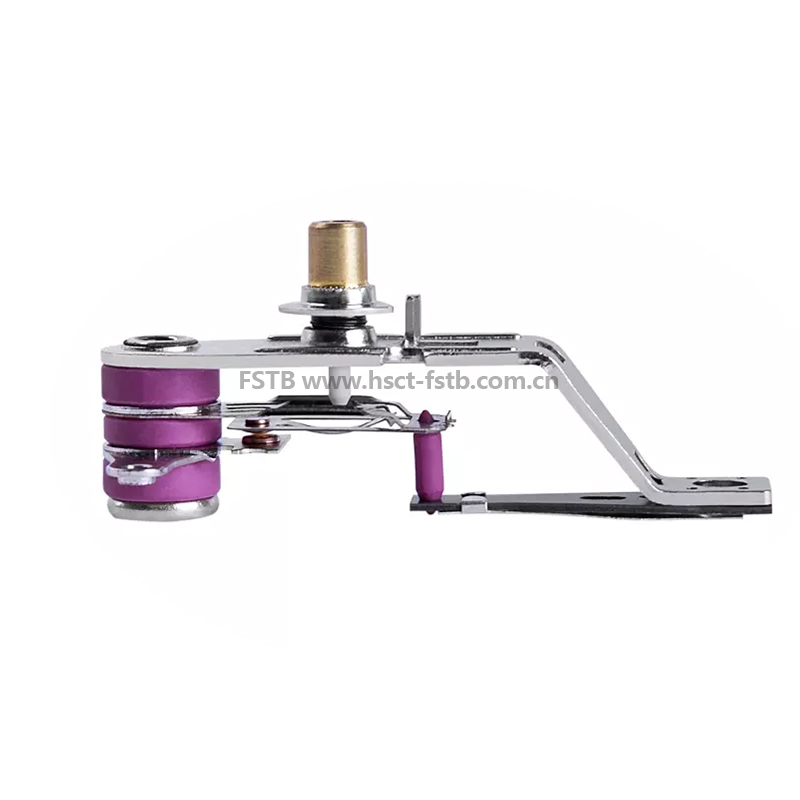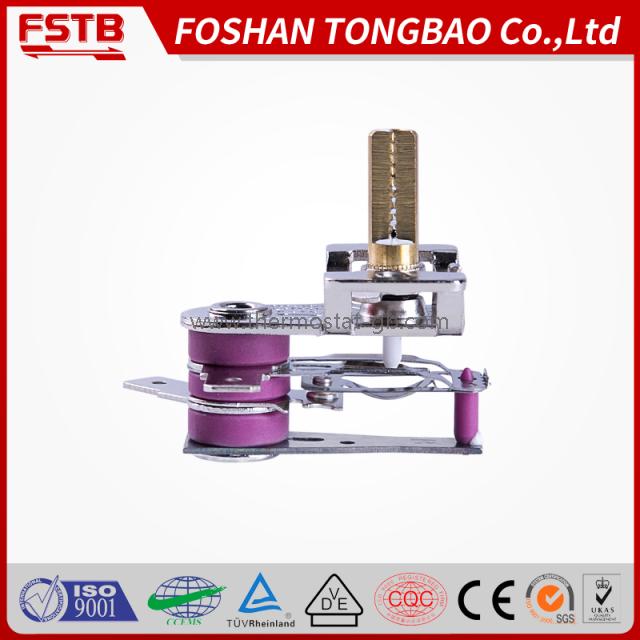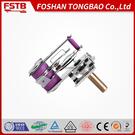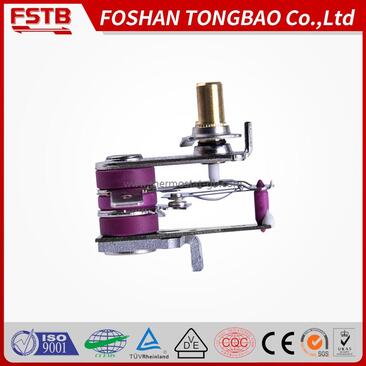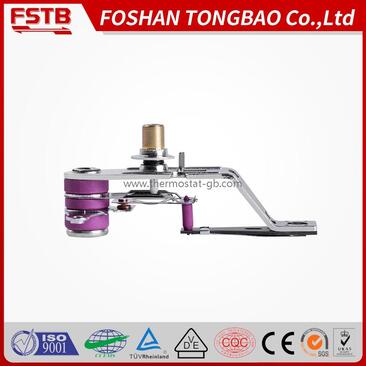Details
- 商品详情
PRODUCT DESCRIPTION
KST501 series adjustable thermostat is designed for High- power loading appliance with maximum current of 16A. Thermostat is operating by sensing ambient heat and the heat transmit through the metal mounting plate. It has various mounting design customized for different appliance upon requirements. Widely used in fan heater, oven, and convection heater.
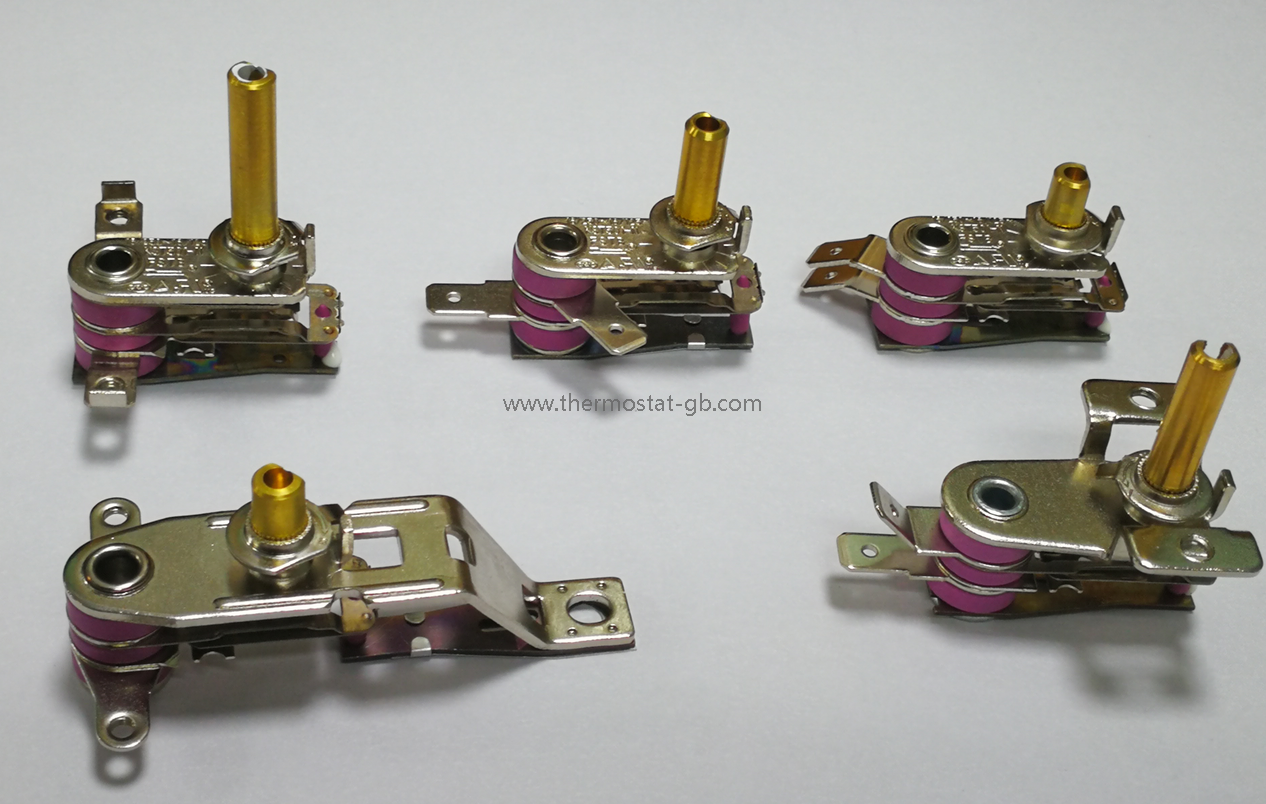
BASIC TECHNICAL PARAMETERS
| Rated current&volt: | 10A/16A,250V | Operating temperature: | 0℃~260℃ |
| Tmax: | 300℃ | B type, Life cycles: | 100000 |
| Cold-resistant Temperature: | -40℃ | Type: | None-thermal compensation/thermal compensation |
| Reset type: | Auto Reset | Pollution level: | 2 |
PRODUCT ADVANTAGES
| ●The structure and size of the mounting plate can be changed according to the actual situation of the customer; ●The terminal can be screwed or fast-connected according to customer's requirements. The position of the terminal can also be changed according to the actual situation. ●The dimensions in parentheses are variable according to the actual situation. The drawings are for reference only. | 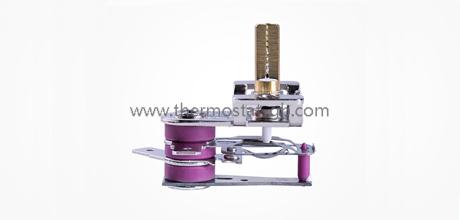 |
DIMENSION OF THE MAIN BODY
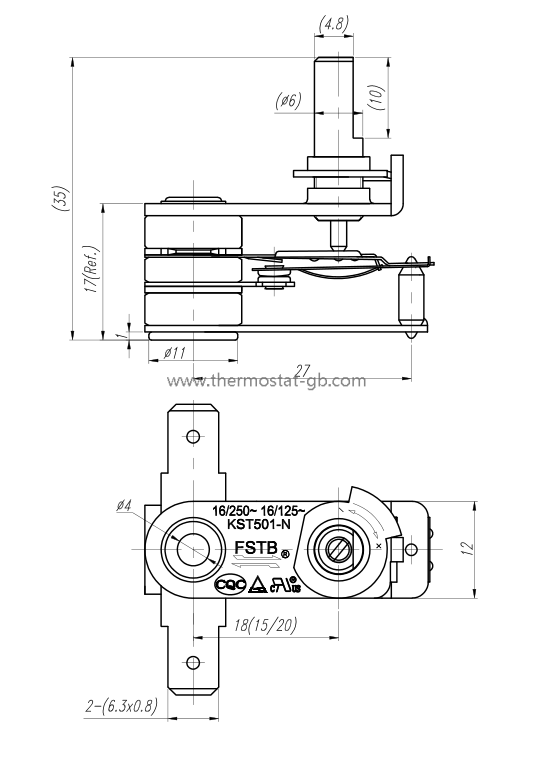
SAFETY CERTIFICATE
| OT | Life cycles | Voltage | Current | Certification |
| 0~260°C | 100,000 | 250VAC125VAC | 10A/16A | CQC/TUV/UL |
INSTALLATION AND DIRECTION FOR USE
| Installation and use instructions: |
| 1. Grounding method: Connected to the grounding metal parts of the equipment through the metal casing of the thermostat. 2. The thermostat shall be operated in a general indoor environment where the relative humidity of the air is not more than 90%, no corrosive gas, no flammable gas and conductive dust. 3. When the temperature controller is in contact with the temperature, the cover should be placed close to the heat-generating part of the controlled appliance, and the thermal surface of the cover should be coated with thermal grease or other similar heat-conducting medium. 4. When the temperature controller is exposed to liquid or steam, it is recommended to use a stainless steel cover and a reliable leak-proof measure to prevent liquid from seeping into the insulation of the thermostat. 5. It is not possible to collapse or deform the top of the cover to avoid changes in operating temperature or other properties. 6. Do not allow liquid to penetrate inside the thermostat! The housing must be protected from excessive forces to prevent cracking; the housing should be kept clean to prevent contamination of conductive materials to prevent short-circuit breakdown due to reduced insulation. 7. The terminal cannot be bent during use, otherwise the reliability of the electrical connection will be affected. |
Previous


